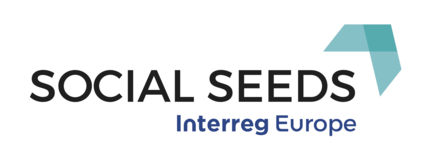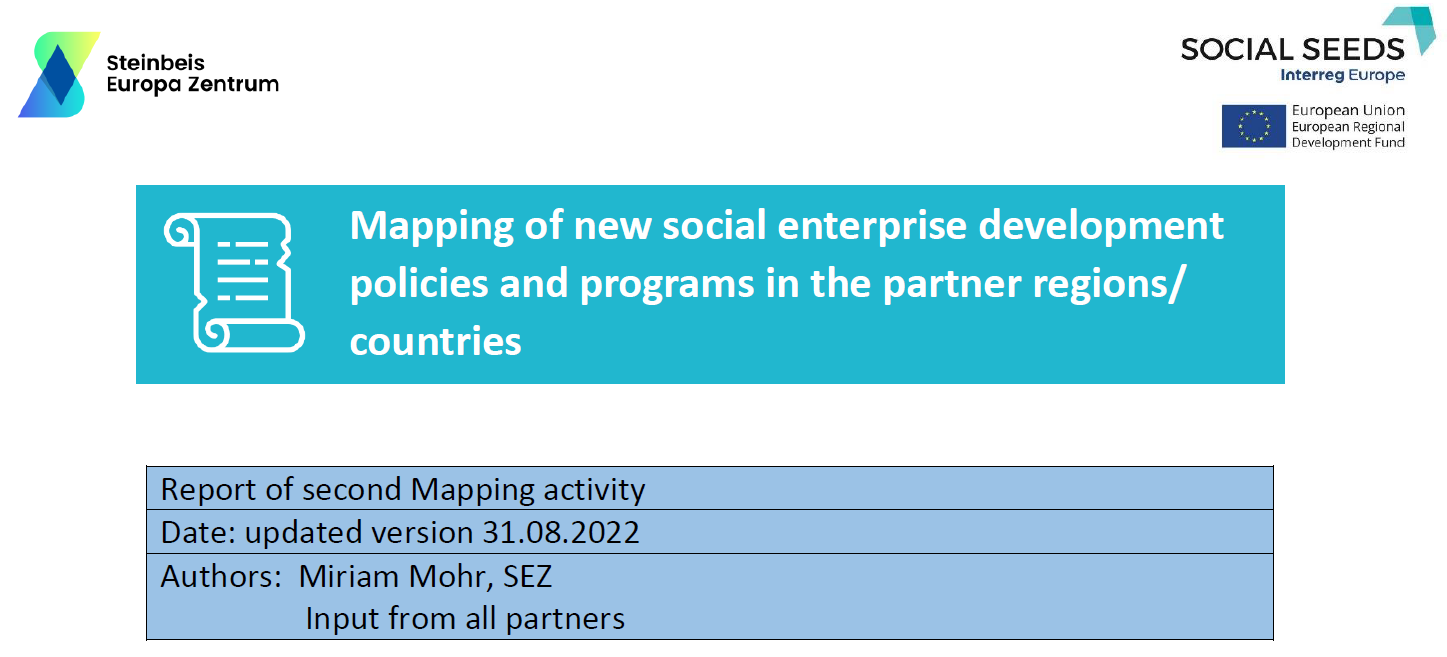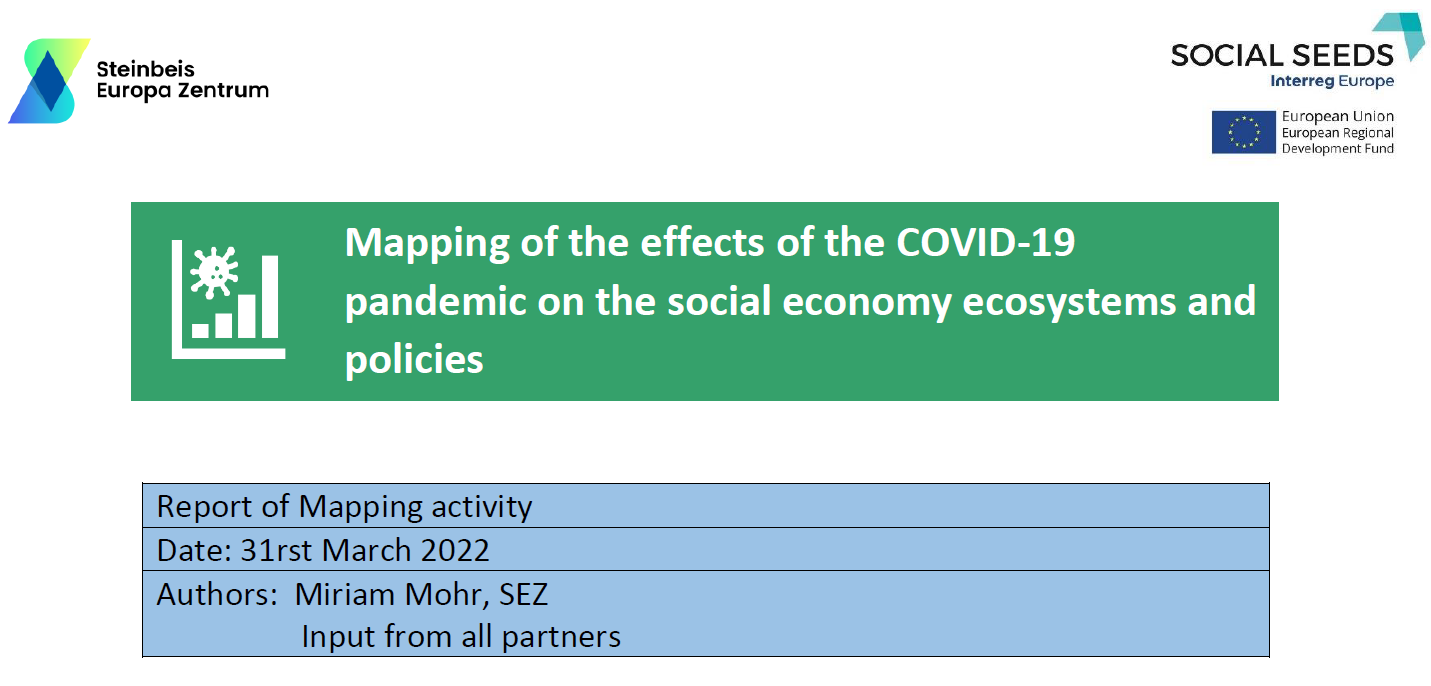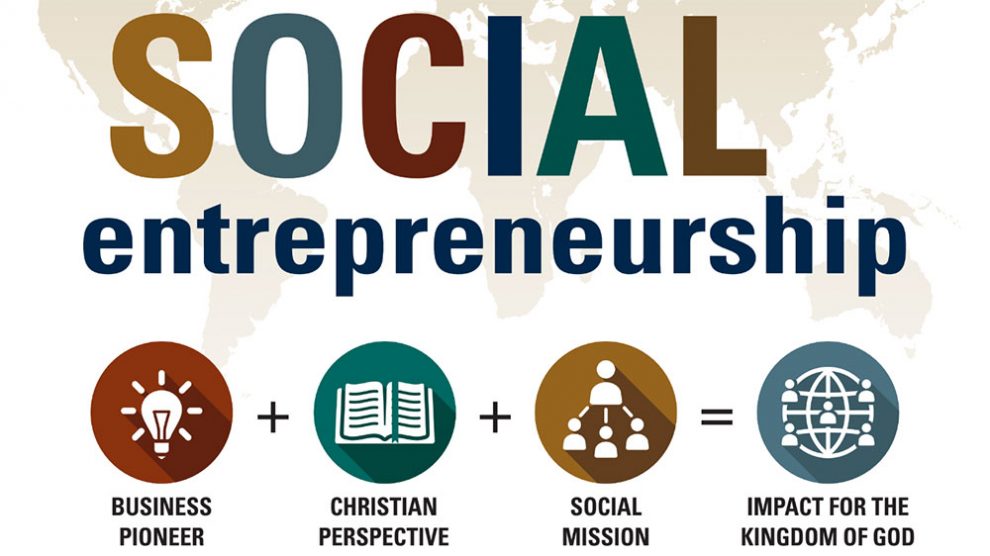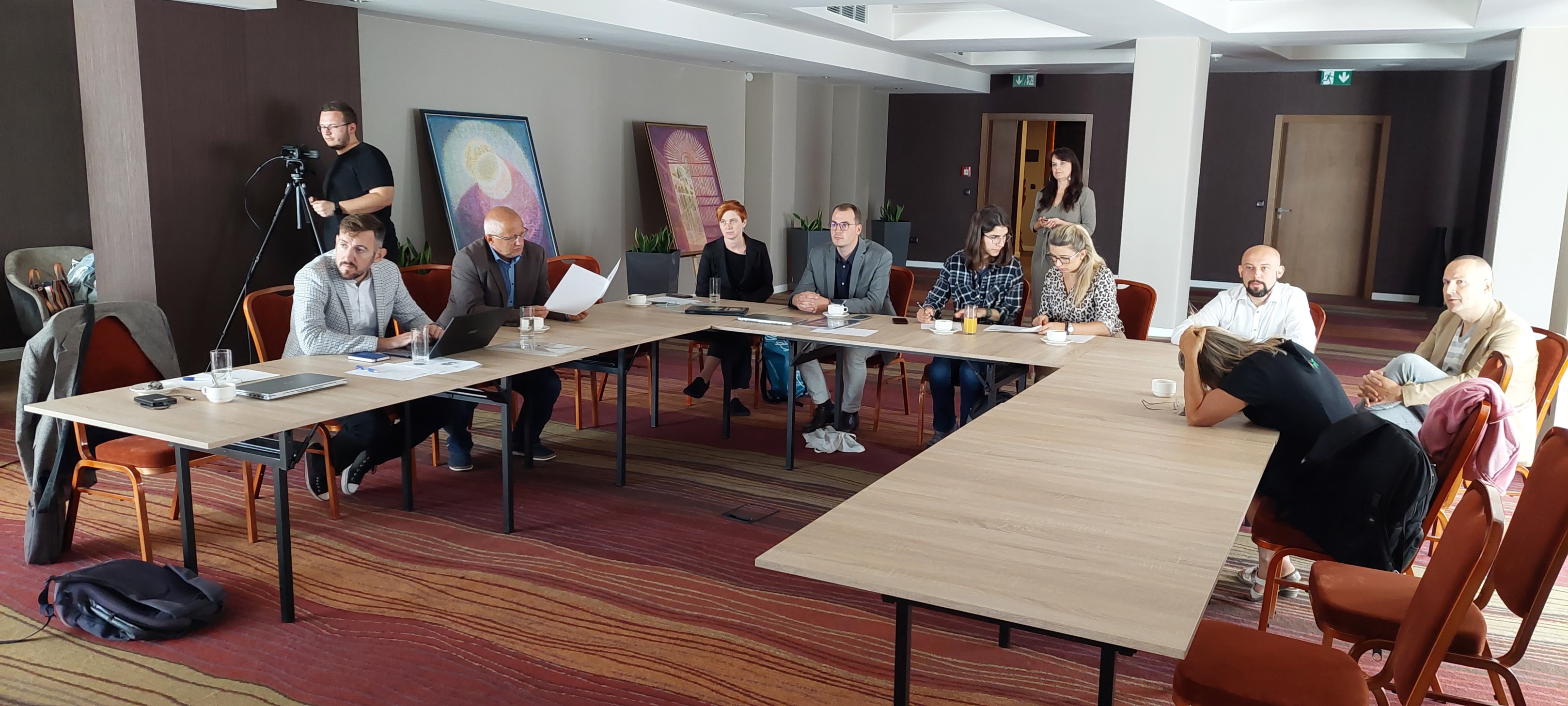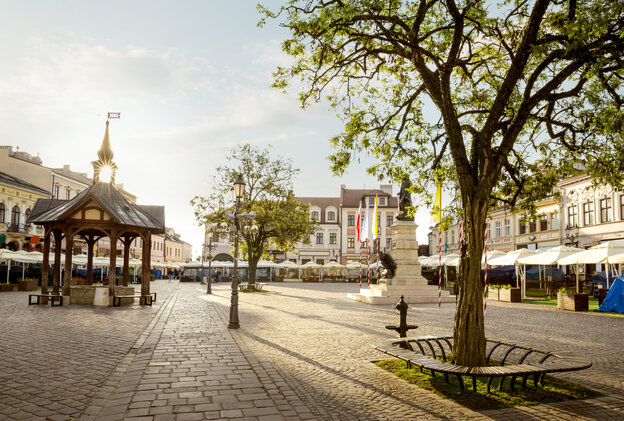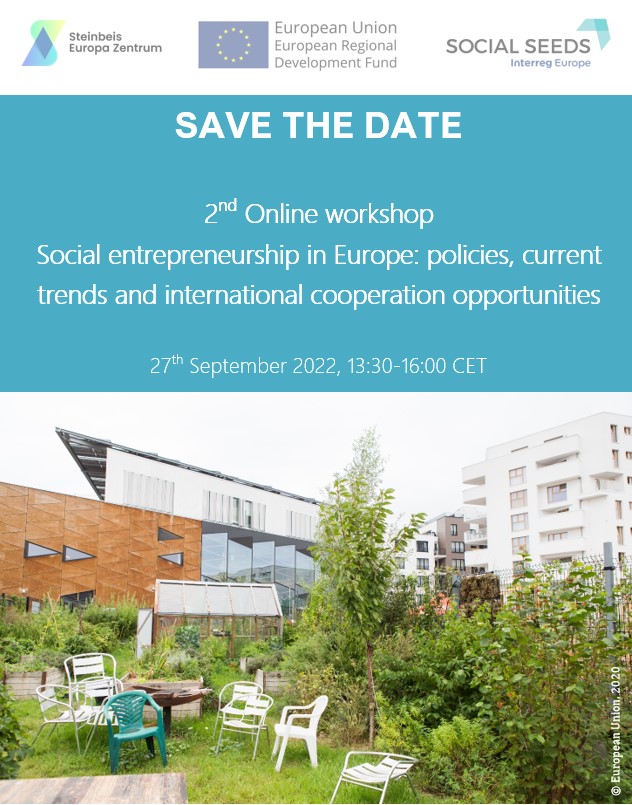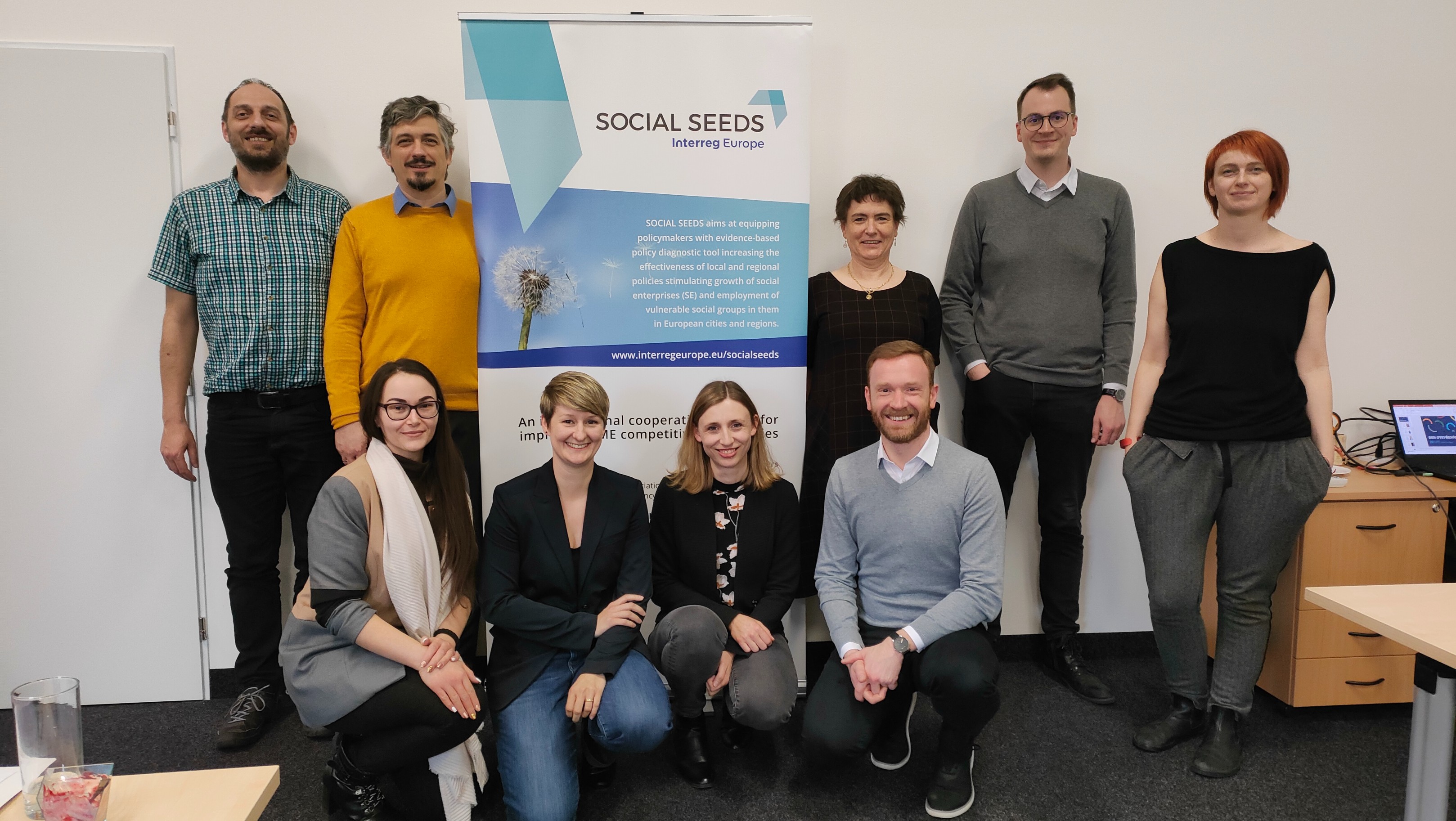Following a successful rollout of the European social economy regions initiative in 2018 and 2019, the European Commission Directorate-General for Internal Market, Industry, Entrepreneurship and SMEs is launching a third edition of the European social economy regions (ESER). The ESER make regional and local social economies visible by supporting regional authorities in organising awareness-raising events where stakeholders can also build active networks.
ESER 2020 GOALS
• continue to raise awareness in new regions and cities for better geographical balance between COSME countries;
• encourage innovative applications
• introduce new ways of Commission engagement in regional/local ESER events via online and offline tools (webinars, live-chats etc.)
ESER 2020 is aimed at public, regional and local authorities interested in the social economy that didn't take part in previous ESER editions may submit a proposal to organise a targeted event with regional and local stakeholders. Regions and cities who already took an active part in ESER 2018 and 2019 can apply for the ESER 2020 – ESER 2.0. The applications should develop initial ESER awareness-raising further.
DEADLINE
Public regional or local authorities may submit their proposals to organise an ESER 2020 event by 31 January 2020.
WHY APPLY?
Despite their positive impact on society at large, social economy enterprises across Europe often suffer from a lack of visibility and recognition. Also, stakeholders are more active at the local level. They rarely work together and they are not adequately heard. The 2018 and 2019 editions of the European social economy regions attracted more than 80 regions and cities from EU countries and COSME third countries. They contributed to more awareness about the regional and local social economy as well as new connections between social economy stakeholders at European level.
The 2020 edition of ESER will continue to raise regional and local awareness, while the new 'ESER 2.0' component aims at targeted social economy community building. With ESER 2.0, ESER 2018 and 2019 regional and local partners can raise awareness to the next level. It will build on stakeholder networks established at previous ESER editions. ESER 2.0 will also help stakeholders use their unique knowledge through innovative approaches focused on concrete outcomes for ESER 2.0 events.
HOW WILL THE EC SUPPORT LOCAL EVENTS?
• By providing a Commission expert to several ESER 2020 events;
• By offering online (virtual) supportive tools and/or promotional materials for ESER 2020 events without a Commission expert present;
• By providing a joint visual identity of the European social economy regions initiative;
• By promoting the events.
The Commission will NOT provide financial support to ESER events.
ESER2020 SELECTION CRITERIA
• Applicants should not have applied for or have not been actively involved in the 2018 and 2019 ESER events. (Except for ESER 2.0 applications);
• Wide participation of regional/local social economy stakeholders;
• Ability to cover all the financial costs linked to organising regional/local events;
• Obligation to use the European social economy regions joint visual identity to promote the event;
• Interest in joining a European network of public authorities and stakeholders interested in the social economy;
• Adequate promotion of the event;
• Strict geographical balance of the applications.
ESER 2.0 SELECTION CRITERIA
• Applicants took an active part in ESER 2018 and/or 2019 editions;
• Applications aim to build on outcomes of ESER 2018 and/or 2019 through;
• An innovative approach of ESER 2.0 events (such as participatory methodology, interregional dimension, citizens' engagement etc.);
• Targeting concrete outcomes of ESER 2.0 events (such as preparing future projects that address gaps in the use of EU instruments for social economy, addressing concrete SDGs etc.);
Including 'social economy canvas testing workshop' in ESER 2.0 events is seen as an asset. Up to now, neither academics or practitioners have converged their work in a business model canvas applicable to all types of social economy and social enterprises on a broader scale. Even though the existing social economy and social enterprises canvases are progressively embedding social and environmental concerns into the design of economic activities, these new business model approaches are still leaving out important dimensions and differentiation from the canvas. Social economy canvas will provide a framework to improve the design, development and scaling-up of socially and environmentally responsible economic activities. It could also help to identify weaknesses and improve the performance of the social economy and social enterprises’ ecosystems.
HOW TO APPLY?
Apply by filling in the template and submitting it to [email protected] by 31 January 2020.
